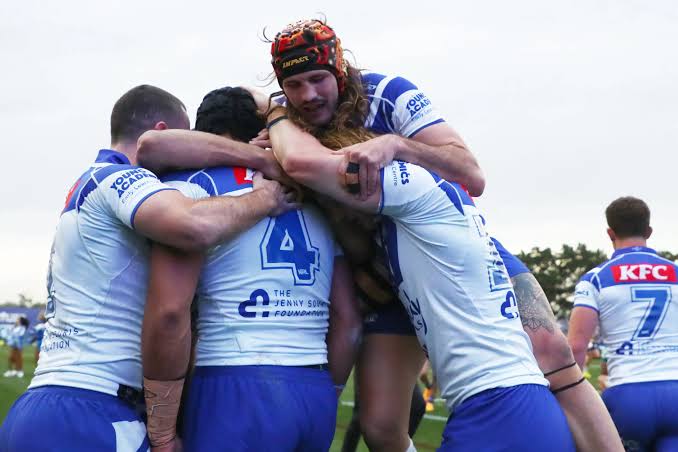Bulldogs shine as finals contenders despite salary cap challenges
They played $700,000 under the whole season.
The Canterbury Bulldogs proved they were contenders this year, but fell short in a tight first-round battle against the Manly Sea Eagles, ending their finals run.
It’s been eight years since the Bulldogs last made the finals, and Belmore fans are prouder than ever of this year’s NRL campaign.
In encouraging news for Canterbury fans—and disappointing for rival clubs—it has come to light that Cameron Ciraldo led his team to the finals despite being $700,000 under the salary cap.
That figure is the same amount of an elite representative player is paid, and some who can individually change the result of the match.
NSW Blues stars Bradman Best, Reece Robson and Liam Martin get paid by their clubs the amount that the Bulldogs played without in a stellar season.
Imagine how they could’ve advanced in the season with another high-paid player for that amount.
An estimated $900,000 of the Bulldogs’ salary cap was allocated to pay former contracted players who are now playing for other clubs in 2024.
This strategy is well-known to Bulldogs GM Phil Gould, who, during his time at Penrith, took salary cap hits by paying players like Waqa Blake and Reagan Campbell-Gillard to play for rival clubs, believing that the long-term benefits would ultimately pay off.
This means that, from an $11.65 million salary cap, the Bulldogs are starting with a $1.6 million disadvantage in 2024.
Additionally, they incurred another $1 million on those who didn’t even play in the NRL this year, including Ryan Sutton, Jackson Topine, and Karl Oloapu.
The Bulldogs are gearing up to prepare for November 1, when the free-agency period opens, with hopes of signing some impressive talent.
With the speculation surrounding the recent Josh Addo-Carr incident, the Bulldogs could see an additional $500,000 available for the signing period after allowing the winger to test the open market.
Addo-Carr has accepted the consequences of his positive roadside drug test by paying a $15,000 fine and receiving a four-match ban.
Despite the incident, Sydney-based clubs have expressed interest in Addo-Carr, who is still under contract with the Bulldogs for another 12 months. His situation could provide the Bulldogs with greater flexibility and power in their salary cap.
The Dogs take pride as a well-run club that uses their money accordingly to sign players who will provide the club with great significance.
The signing of Stephen Crichton this year exemplifies their strategy, bringing in a player with excellent experience who has led his side to the finals.
The Bulldogs resisted the temptation to make reactionary decisions to address short-term issues simply because they had the financial resources.
Instead, they focused on developing their young talent while building a strong team with a solid mix of experienced players to guide them.
Under NRL rules, every club must spend 97.5 per cent of their salary cap each year. By operating $700,000 under the cap, the Bulldogs have gained a head start for forward-paying or extending contracts for current players while also retaining maximum reserves to pursue new signings in the market.
Phil Gould praises his club for how well they did this year, whilst playing well below the salary cap.
“It was a breakthrough year for the club in terms of culture building, relationship building, work ethic and professionalism,” Gould said to The Locker Room. “It felt a lot more like the Bulldog culture I remember. “It’s a big reason why the fans returned in such big numbers. You can cheer for this team.
“We had five young players make their NRL debuts and there is more of this to come in the next few seasons.”
The Canterbury Bulldogs turned the tables this year, proving they aren’t a wooden spoon club by finishing sixth on the NRL ladder. With this momentum, they are poised to continue growing from this point forward.
